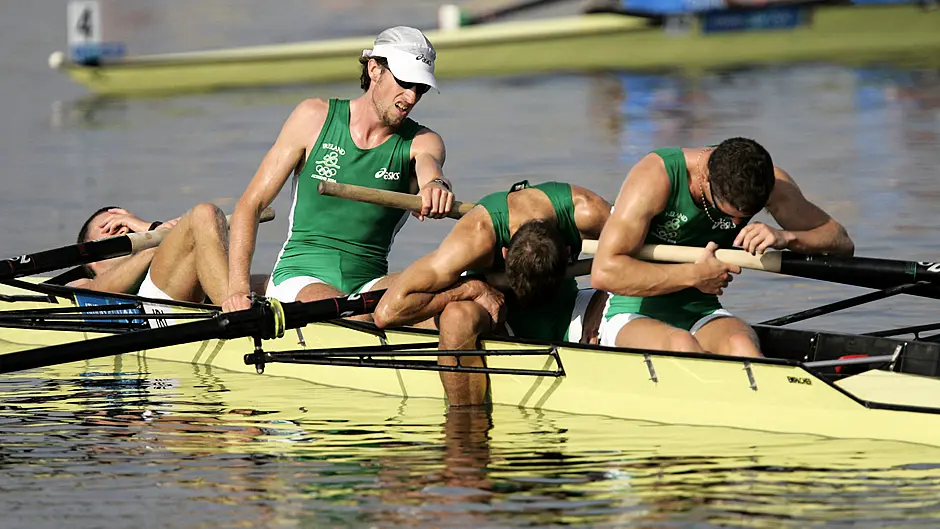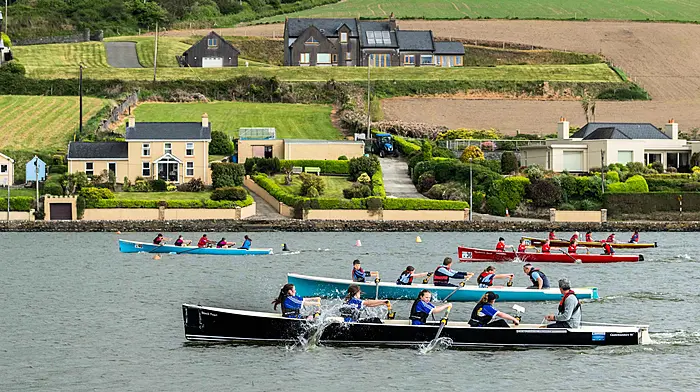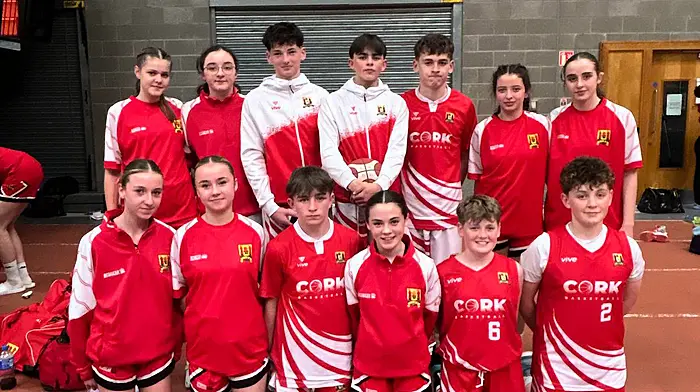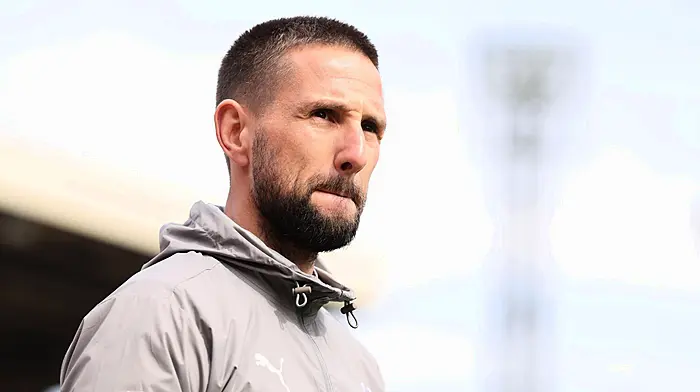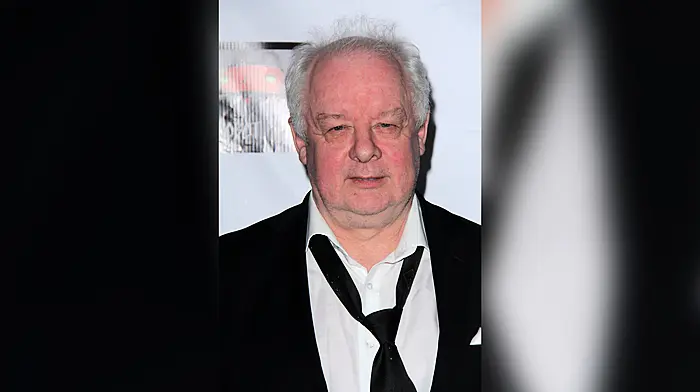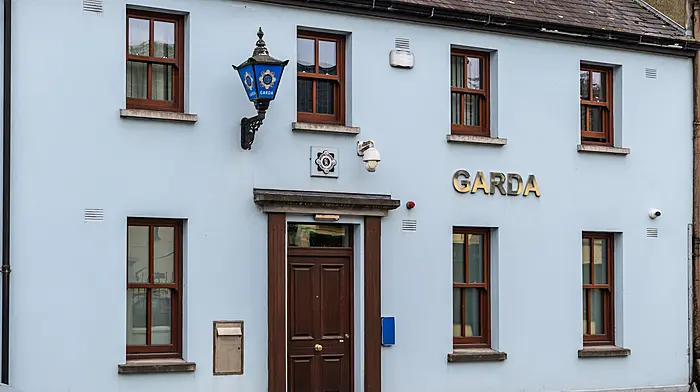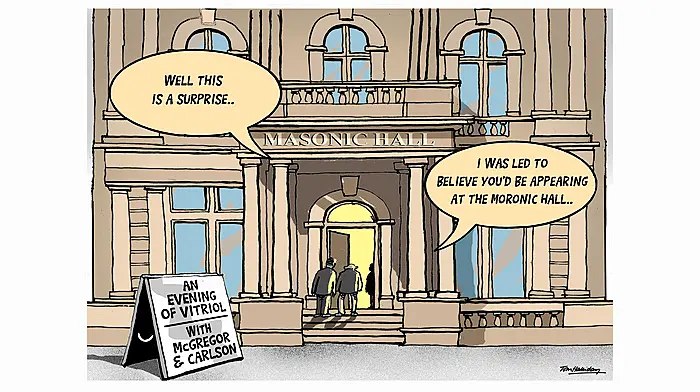TO appreciate just how good former Skibbereen rower Eugene Coakley was in his prime, there’s no need to look any further than the verdict of Thor Nilsen.
The Norwegian rowing coach is a legend in the sport. He guaranteed success wherever he went. Norway, Italy, Spain, Ireland, they all blossomed under his system, and he saw something in Eugene, too.
When I was researching for Something in the Water, the story of how Skibbereen Rowing Club conquered the world, I spoke to Nilsen about his experiences with the club and its people, including two-time Olympian Eugene.
‘He was a real talent and had the right mentality,’ Nilsen said – and that’s high praise. He coached Eugene – and his Skibbereen club-mate Timmy Harnedy – when the Irish lightweight four qualified for the 2004 Olympic Games in Athens. There, that boat made it to the A final, the medal race.
Twelve years before Gary and Paul O’Donovan smashed the glass ceiling at the 2016 Olympics in Rio and brought home Ireland’s first-ever rowing medals from the Games, Eugene and that Irish lightweight four had a realistic chance of being the first. The potential was there. This was a young, hungry crew, coming off the back of an encouraging 2003, and they were only getting better.
At a training camp in Seville the winter before Athens 2004, the Irish lightweight four – that included Coakley and Harnedy – was flying.
‘I remember Thor said we were going too fast. We did a race in January 2004. It was a small, local race and whoever happens to be in Seville at the time takes part. We did two minutes and 51 seconds for 1000m and we beat the Dutch by a length and a half – and that’s a massive distance over 1000m,’ Eugene told the Star Sport Podcast recently.
‘Our confidence was sky high. I clearly remember Thor saying we were going too fast, that there is six months to go to Athens, but we were young, it made no difference to us, we just wanted to go fast all the time.’
But, for a variety of reasons, later that summer – and Harnedy was a sub by now – they missed their opportunity. The Irish boat finished sixth in the A final at Athens and joined the list of the nearly men, the Irish rowers that nearly won an Olympic medal. Just like there’s no medal for fourth place – the Irish lightweight four finished fourth in the medal race at the 1996 Olympics in Atlanta –, there’s none either for sixth. Quickly, they’re forgotten, and life moves on.
‘I never get hooked up on this business when the media say that we could have been the first (Irish) crew to win an Olympic medal. We had the opportunity. No doubt, we did. It was a missed opportunity, but there is no point crying over spilled milk, it’s done and we can’t turn back the clock,’ Eugene says.
‘In life, it’s a fine line between winning something and not winning it. It was just unfortunate the way things transpired that the opportunity was taken away from us. There is nothing I can do to change it.
‘I’m glad that I did, perhaps, help in paving the way and that allowed Gary and Paul to come along and they obviously produced the goods in 2016. Does it keep me awake at night? No, it doesn’t. It’s in the past.’
Eugene’s role in this ongoing Irish success story shouldn’t be forgotten though. The same for Timmy Harnedy. And Eugene’s younger brother, Richard. All three Skibbereen rowers are Olympians, and all three are key figures in The Gary & Paul O’Donovan Story. Eugene and Co were heroes to a generation at the club, including Gary and Paul. Eugene is also a two-time Olympian, having travelled to the 2000 Games in Sydney as a replacement.
‘We always looked up to them. The likes of Eugene Coakley and Timmy Harnedy, they were our heroes. What they were doing, competing in world championships and Olympics, seemed achievable because these lads were local. Not someone like Usain Bolt, who might as well have been superman,’ Gary explained before. Eugene’s success at international level showed that rowers from Skibbereen could mix it with the best in the world. He won silver at the World U23s in 2001, silver at the senior Worlds in 2005, was a Rowing World Cup champion in 2006, and a bronze medallist at the senior Worlds in 2006.
Consistently, he performed at the highest level and showed a pathway existed from the River Ilen to every major international regatta in the world – that’s an important part in the Skibbereen rowing jigsaw.
Life could have been very different for Eugene if that Irish lightweight four had fulfilled their potential in 2004, but he’s not dwelling on the what-ifs.
‘We served our apprenticeship in 2003 and should have been ready to be on the podium in 2004 but, look, shit happens, no one died, life goes on,’ he says – and that’s the mentality that saw Small Euge, his nickname as a kid, mature into one of Ireland’s finest rowers of the noughties.
In rowing, different people bring different qualities to the boat. Eugene considered himself a metronome, pulling the same stroke over and over again. Modestly, he says he was a dependable rower, but he was more than that – he was a natural rower, with great technique, built with incredible endurance and, crucially, who didn’t slow down the boat between strokes. He was good enough to represent Ireland at senior level for most of a decade, and his story and the knock-on effect on Skibbereen and Irish rowing shouldn’t be forgotten. The same applies to Timmy Harnedy and Richard Coakley. To a generation, when they hear of Skibbereen Rowing Club, it’s Gary and Paul – first names, only – that spring to mind, and that’s understandable given their profile which came off the back of their 2016 Olympic success, but the building blocks were laid by the generation before who came closer than most realise to creating Irish rowing history.

